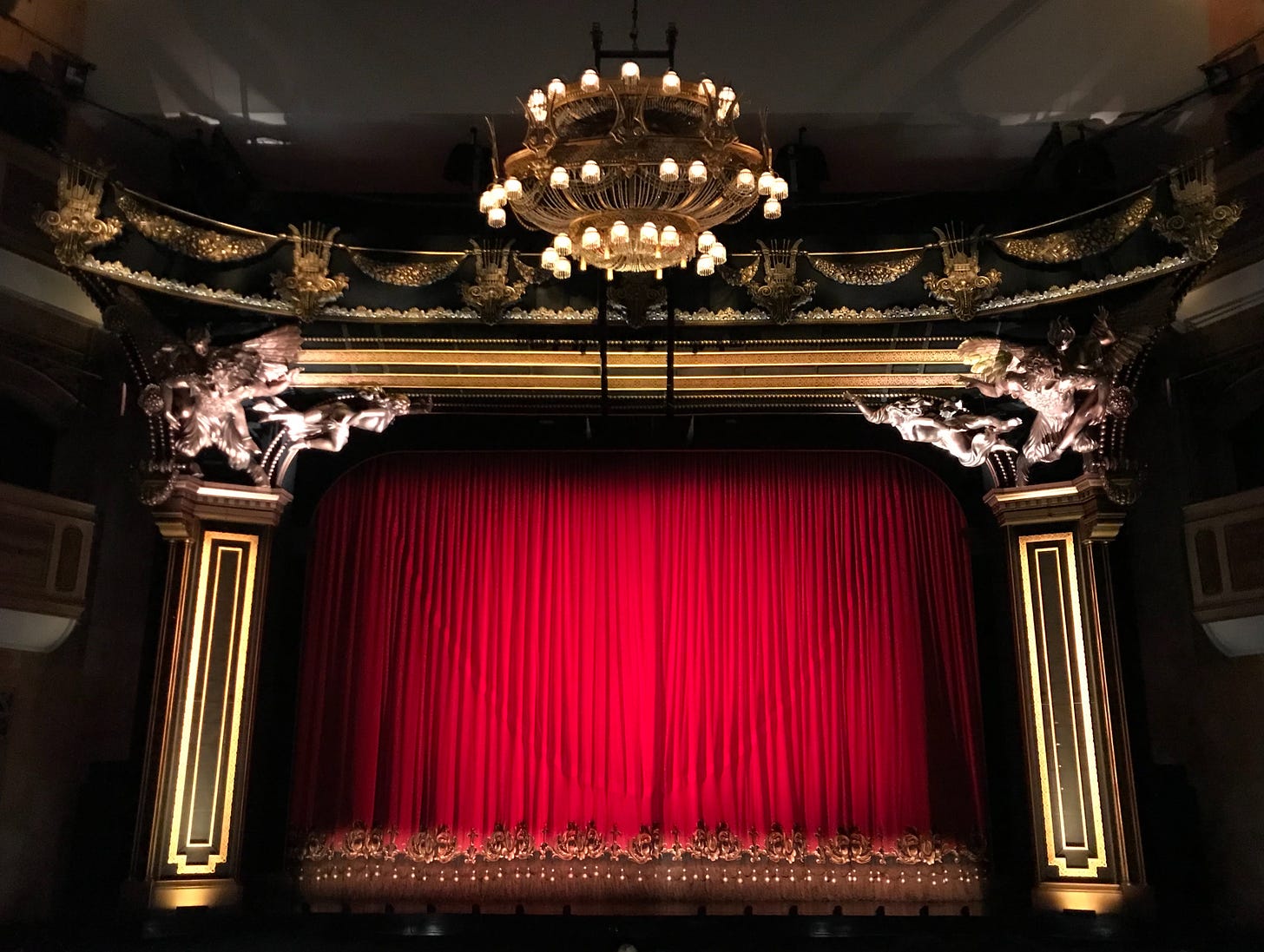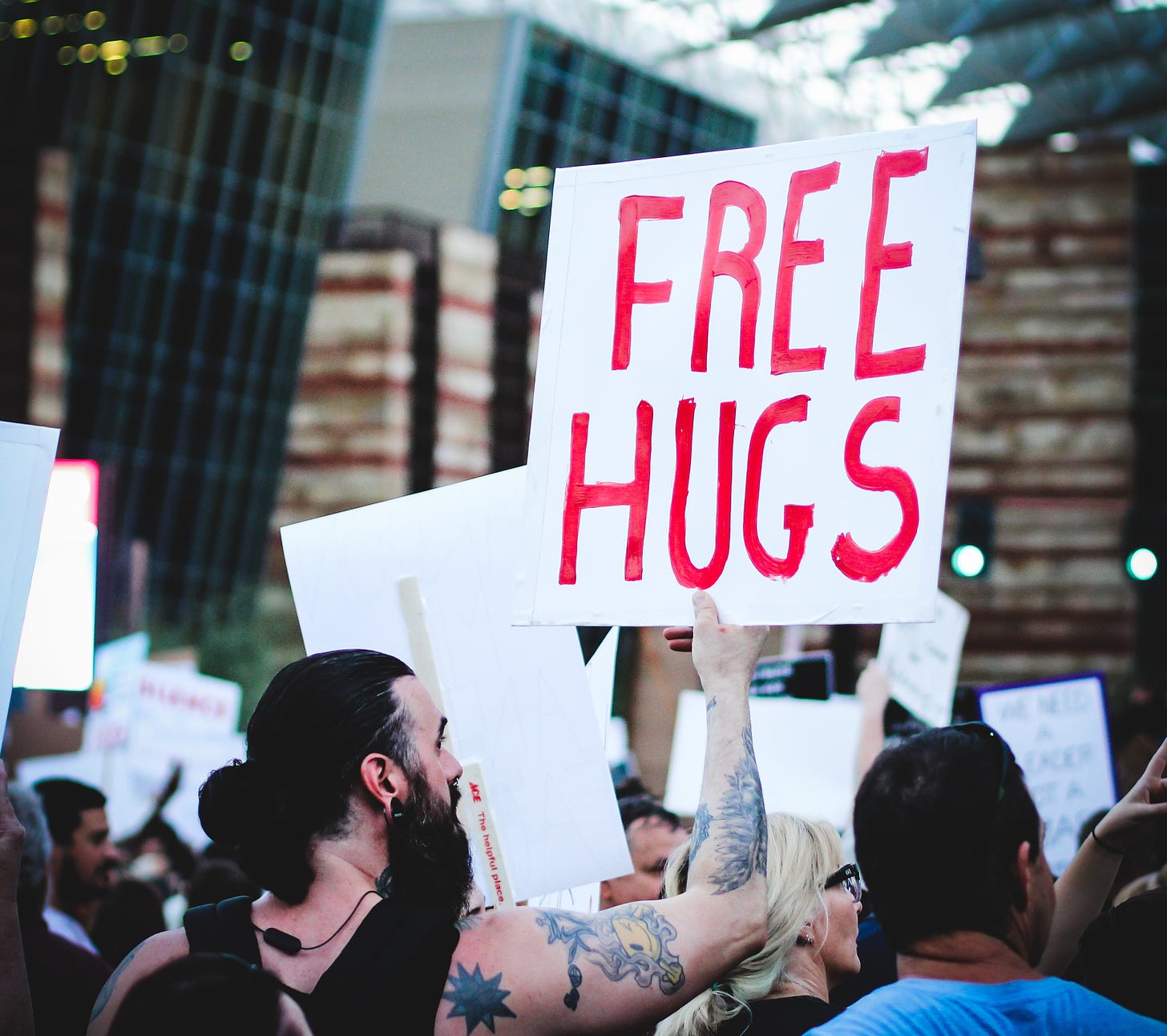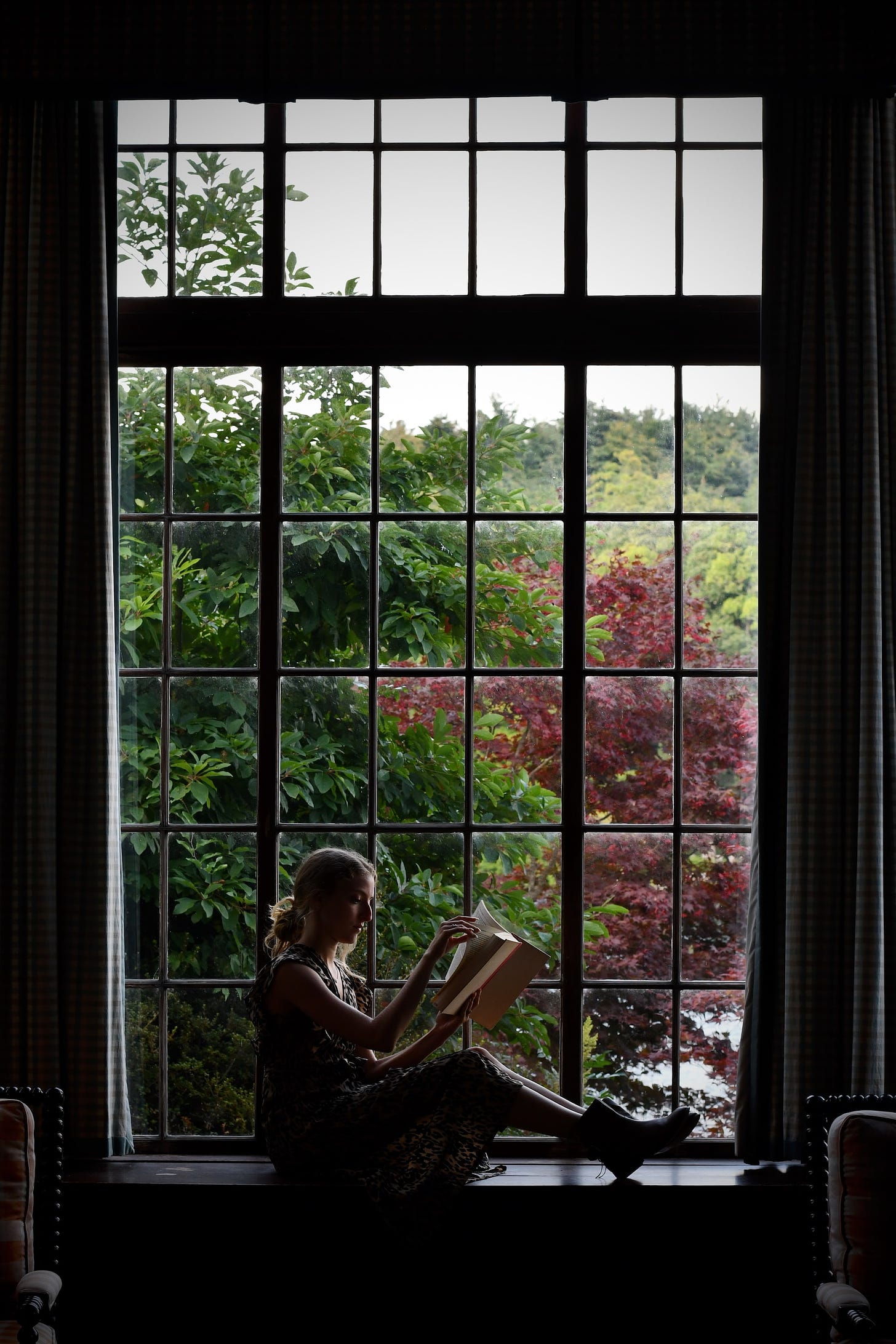A Word Before the Curtain Rises
What does enchantment have to do with (lower case) united states? The post that kicked off this newsletter.
I have never coaxed Chopin from a piano or Bach from a cello in row three of a well-rehearsed orchestra. I have never traded smiles with an orchid tended into bloom by my own hand. But I think I know something of what piano- and cello- and orchid-people feel because I have my own sources of enchantment.
People speak of enchantment as a state of magic or wonder. It can come from a “flow” state of experience, from an awesome encounter with nature, from a charismatic person, or from a work of art — like a book. The feeling itself is so worthy of attention that we do not often attend to what happens to our individuality under its influence.
By “enchantment,” I mean a state of feeling so exalted that it makes the edges of identity go fuzzy. In this condition, one feels—at least briefly—unusually connected to—something or someone. At the ocean’s edge, one person feels strangely merged with other liquids and solids. At a certain point in a song, a chant, or a game, someone else senses that the choir, the band, the cast, the team, the crowd, or the family is the primary organism. Participants become individually smaller and yet paradoxically enlarged. We are not all susceptible to the same charms, but when we give ourselves up to enchantment, we serve up a little of our separateness, too.
Writers of literature and sometimes history have a lot to say about this kind of experience. Some of them have given me to understand that enchanted states are not only individual sensations; they create social relationships that democracies need.
This newsletter gives me a chance to spend some extra time with these writers and these scenes, and to find others who like this sort of thing. Enchanted in America looks to literature and history for
examples/scenes of enchantment and
insights about how enchanted states contribute to united states.
There are other names for this kind of experience. We could speak of an “adrenaline rush” or “serotonin high” to make it entirely a matter of bodily systems. We could speak of “rapture” or “grace” to spiritualize it. These words would not be wrong. But we live in a time when church-words alienate a large number of people. Also, mass culture obsesses over bodies as though material systems explain everything. The word “enchantment” offers a middle ground that some American writers chose to use a century or two ago, a word that admits of both secular and religious understandings of experience; a word that recognizes the way bodily sensations interact with cognition and will.
I am an academic who has taught American literature for 30 years. This is the perspective I bring to this subject. I'm going to get (slightly) academic for a few paragraphs just to let some other voices into the room, others interested in enchantment too. In 2001, the political philosopher Jane Bennett challenged the conventional wisdom that reduced “enchantment” to pre-modern superstition. She found evidence of enchantment—a “mood” of “affective attachment” that allows for the formation of ethical bonds—embedded in modern experience.1
Historian Michael Saler agreed. In a 2012 study, he argued that the “virtual worlds” created in fiction by Arthur Conan Doyle, H. P. Lovecraft, and J. R. R. Tolkien provided examples of enchantment persisting in the midst of (supposedly) disenchanted modernity.2 With Joshua Landy, Saler edited a book called The Re-Enchantment of the World: Secular Magic in a Rational Age, offering more meanings and examples of enchantment.3 Most recently, an international group of scholars is exploring relationships between enchantment and capitalism.4
*June 2023 Update - Paragraph and footnote added*
’s book Enchantment: Awakening Wonder in an Anxious Age (Feb 2023) had not quite come out when this post was originally written in January and February 2023, but her lyrical definition belongs here, too. Describing both the feeling of enchantment and its effect on individuals, she wrote,Enchantment is small wonder magnified through meaning, fascination caught in the web of fable and memory. It relies on small doses of awe, almost homeopathic: those quiet traces of fascination that are found only when we look for them. It is the sense that we are joined together in one continuous thread of existence with the elements constituting this earth, and that there is a potency trapped in this interconnection . . . . (pp. 8-9).5
When we come at the subject from a literary angle, that “potency trapped in this interconnection” includes not only the swirl of energies and exchange of elements between humans and the non-human; it also extends to connections between people. Given how many interpersonal and political connections fail, it is important to understand the aesthetics of enchantment, to find out what interpersonal potentials remain immature in us.
The recovery of the old-fashioned idea of enchantment is not all roses, of course. One could argue that Hitler and Mussolini were enchanters. The January 6, 2021, riot at the U.S. Capitol represents a collective sensation that we will need to consider in relation to happier examples, such as the fountain of delight when a parent hears the first performance of a child in the elementary school band.
This newsletter seeks out writers and scenes from history, past and present, mostly American, to shed light on how everyday wonders, marvels, and excitements contribute (for better or worse) to united states. With lower-case letters, the phrase “united states” refers not only to the aspirational U.S.A. but also to the collective identities and intimacies of everyday experience: friendships, marriages, workplace and neighbor relations, and ad hoc empathies — not limited to any national experience. Humans keep trying to get together, and of course we muff it. And then we try again.
While building an archive of simple scenes of high feeling, Enchanted in America will pursue:
What poets, novelists, and essayists say about the role of enchantment in the making or breaking of communities;
What happens to free will when an enchanter (or demagogue) stirs up a crowd;
Whether theories of enchantment issue any call to my field of higher education. Is enchantment-literacy as important as “critical” literacy? Does enchantment offer a key to the differentiation of the humanities from other branches of knowledge?
If any of this sparks your curiosity, it would be enchanting to meet you here again—just the two of us with a good book. See you soon.
*Post updated June 2023 to add a recently published source by Katherine May in the last section.
Credits:
Theater photo by Gwen King, Unsplash.
“Free Hugs” photo by Sides Imagery, Pexels.
Oh dear, I lost the credit for the woman in the garden window, but she belongs here, don’t you think? Please tell me if you come across her on the internet so I can put her credit back! (She came from Unsplash or Pexels, but she blinked away when I looked for her again. Maybe she will come back there.)
“Woman wearing white dress reading book” (with yellow wall) by Min An, Pexels.
Jane Bennett, The Enchantment of Modern Life: Attachments, Crossings, and Ethics. Princeton University Press, 2001, p. 3.
Michael Saler, As If: Modern Enchantment and the Literary Prehistory of Virtual Reality. Oxford University Press, 2012.
Joshua Landy and Michael Saler, eds. The Re-enchantment of the World: Secular Magic in a Rational Age. Stanford University Press, 2009.
“Enchantment in the History of Capitalism.” Anat Rosenberg, Kristof Smeyers, and Astrid Van den Bossche, eds. https://economic-enchantments.net.
Katherine May, Enchantment: Awakening Wonder in an Anxious Age. Penguin Random House, 2023.








Very interesting concept! Love it. Very much looking forward to reading how you tie these things together. I wonder if there is an intersection here w/ Maslow's self-actualization, which he considers rooted in some sense of the numinous or awe combined with purpose, as it pertains to being a citizen of these States (this country). Sounds like great conversation over a pot of tea or a bottle of wine... :) btw, you have the date wrong on the insurrection - you meant 2021 not 2001
Welcome to Substack!
As to your question on your About page: Can literature and the humanities offer any insights into how to steer toward enchantment and away from divisiveness? Yes! I believe the study of the humanities always holds the answers. The challenge these days is enrolling (emotionally if not academically) more people into appreciation and study of the humanities...
This is a great concept for a Substack and I look forward to learning much from you.